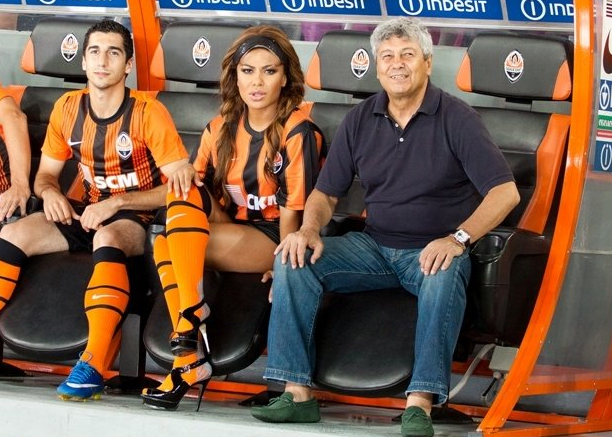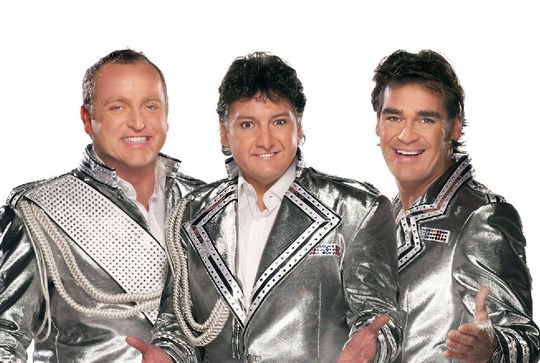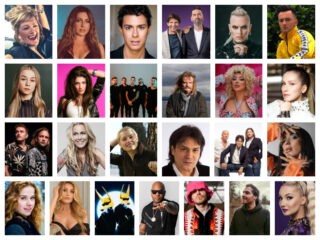In 2010 producer and comedian Stefan Raab brought together ARD, Germany’s state broadcaster, and Pro7, a leading private channel, to select Germany’s Eurovision contestant. The partnership led to three Top 10 finishes in a row. But with Raab out of the picture, will the partnership—and the success—continue? Germany correspondent Daniel Mellem diagnoses the situation.
Prior to 2010, ARD, Germany’s Eurovision broadcaster, staged an annual selection contest that usually resulted in a tragic choice for the nation. The landscape looked like this. In one show some famous (or merely infamous) German artists performed their songs and the audience choose their favourite entry by televoting.
Germany’s choices reflected the variety of styles on offer. In 2005 voters went for rock with Gracia Baur (who later finished 24th out of 24 contestants at Eurovision). In 2006 they opted for country performed by Texas Lightning (15/24). In 2007 it was jazz written by Roger Cicero (19/24), and in 2008 Germany embraced pop with No Angels (23/25). They all left Eurovision battered and bruised—and with Germany sitting in the right-hand column of the scoreboard.

In 2009 ARD finally said enough is enough, and decided to put the democratic vote aside. Doubting the German public’s ability to choose a worthy song, they chose their contestant internally. They sent “Alex Swings Oscar Sings” to Moscow, and threw in burlesque performer Dita von Teese while they were at it. Germany’s well-oiled lead singer pranced around half naked while Dita brandished a whip. But Germany still only managed to finish in 20th position. The public were rightly angered that they didn’t have a voice in this disaster.
Discussions followed, and ultimately ARD decided to collaborate with Stefan Raab. The former comedian had played a part in Germany’s most recent successes at the ESC. His efforts included his own comedic entry “Waddehaddeduddeda” (5/24) in 2000. And he produced Guildo Horn’s “Guildo hat euch lieb“ (7/25, 1998) and Max Mutzke’s “Can’t wait until tonight“ (8/25, 2004).
This collaboration was a novelty in Germany as Stefan Raab has an exclusive contract with the private German TV station Pro7. For the first time in Germany a public channel and a private station produced a show together! The result was Unser Star für Oslo, a casting show where twenty singers showcased their skills over eight weeks. Germans decided not only who they wanted to send to the next ESC, but they also choose the song which was best suited for the winner. We all know the story: The show was very popular and the audience choose Lena as their candidate for Oslo. She won the ESC for Germany the first time since Nicole’s victory in 1982.

The following year Germany hosted the Eurovision Song Contest and Stefan Raab, who is known for his crazy innovations and ideas, decided that Lena should defend her title. That meant that during the 2011 national selection the audience could only vote for the song she would sing. Although she failed to win for a second straight year, she scored another success for Germany. Germany’s presentation was praised as one of the best Eurovision shows of all time, and Lena reached a respectable 10th place.
In 2012 Germany stuck with Raab’s idea, and presented Unser Star für Baku. But this time around Germans seemed less interested than in 2010, and ratings slumped. Furthermore the winner of the show, Roman Lob, failed to match the hype Lena generated in the previous two years. Nevertheless he achieved a very respectable 8th place at the contest.
But what will happen to the national selection now? It’s not likely that ARD and Pro7 will collaborate with one another again. Despite Roman’s success in Baku, neither channel was satisfied with ratings for the national selection. ARD, I suspect, will return to the national selection format they used before their collaboration with Stefan Raab. If that happens it’s doubtful that Germany will repeat the success of the past three years. There are several reasons why.
First, the most famous, and arguably the best, German artists won’t compete in a national selection as they fear it would be awkward not to win.
Second, in these contests the artist with the greatest fanbase is often chosen over the artist with the best song. One of the great things about the Unser Star für…..series was that the finalists each sang the same original compositions. The public was looking for the total package: which song by which artist would work the best.
Third, ARD has an older audience than Pro7. The German entry might not seem as fresh without the influence of Pro7’s younger audience. Their choice will be less Loreen, and more Engelbert Humperdinck. The influence of age also explains why they BBC fails almost every year to find a good entry for the U.K.
Fourth, Stefan Raab always brings new ideas. Not everything works, but his frequent changes make the national selection very exciting and helps to find new ways forward.
Fifth, Raab really knows how to produce a song. He’s had six top ten results with six entries. That can’t just be a coincidence.
Sixth, a big collaboration between two TV stations helps to preserve the popularity for the ESC in Germany, and makes the contest seem more important. That draws more viewers, which arguably makes for a better decision.
If ARD and Pro 7 end their collaboration, Germany might return to the days of No Angels and Gracia: Bad entries that deserve their bad results.









